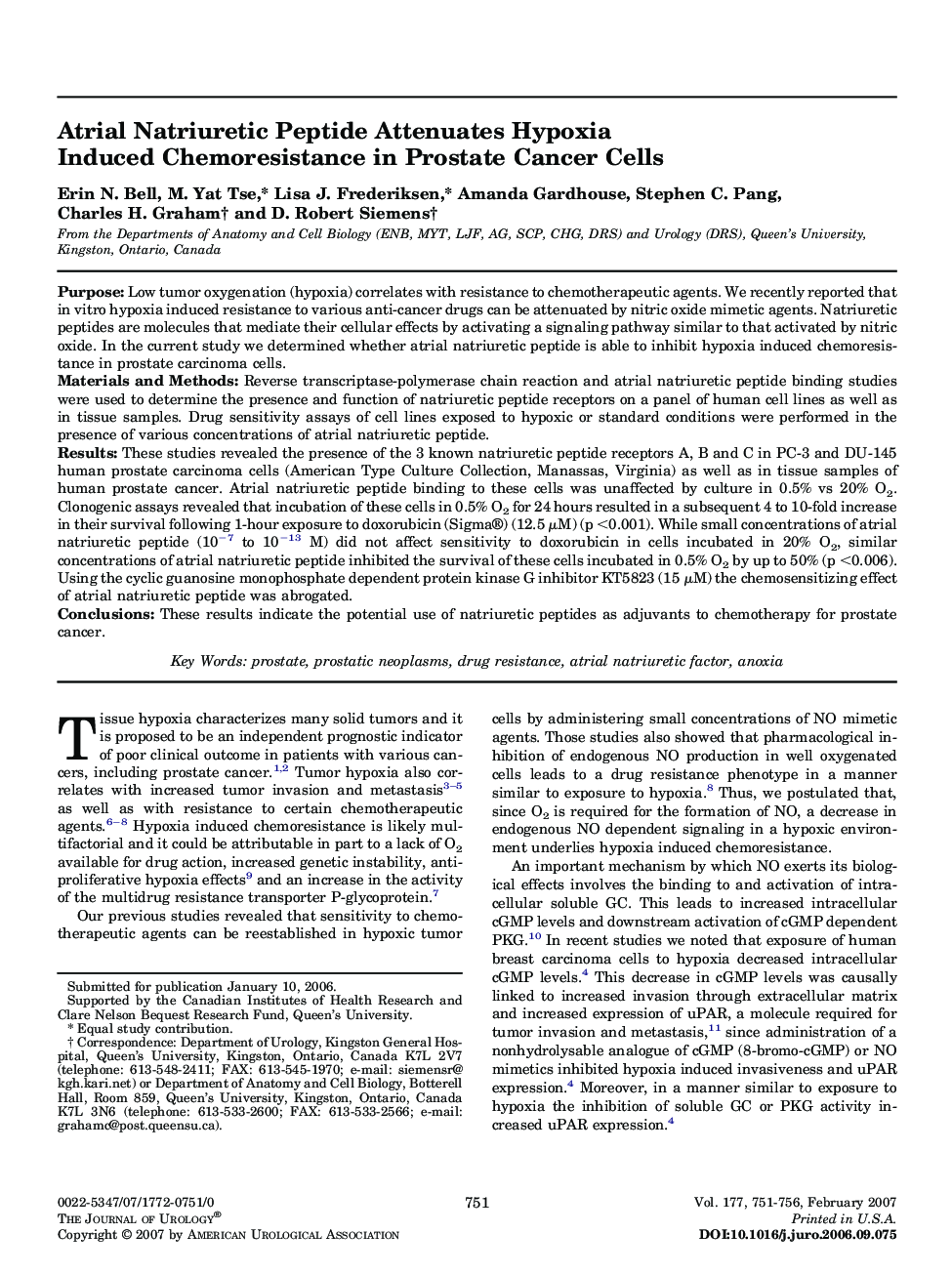| کد مقاله | کد نشریه | سال انتشار | مقاله انگلیسی | نسخه تمام متن |
|---|---|---|---|---|
| 3875518 | 1599013 | 2007 | 6 صفحه PDF | دانلود رایگان |

PurposeLow tumor oxygenation (hypoxia) correlates with resistance to chemotherapeutic agents. We recently reported that in vitro hypoxia induced resistance to various anti-cancer drugs can be attenuated by nitric oxide mimetic agents. Natriuretic peptides are molecules that mediate their cellular effects by activating a signaling pathway similar to that activated by nitric oxide. In the current study we determined whether atrial natriuretic peptide is able to inhibit hypoxia induced chemoresistance in prostate carcinoma cells.Materials and MethodsReverse transcriptase-polymerase chain reaction and atrial natriuretic peptide binding studies were used to determine the presence and function of natriuretic peptide receptors on a panel of human cell lines as well as in tissue samples. Drug sensitivity assays of cell lines exposed to hypoxic or standard conditions were performed in the presence of various concentrations of atrial natriuretic peptide.ResultsThese studies revealed the presence of the 3 known natriuretic peptide receptors A, B and C in PC-3 and DU-145 human prostate carcinoma cells (American Type Culture Collection, Manassas, Virginia) as well as in tissue samples of human prostate cancer. Atrial natriuretic peptide binding to these cells was unaffected by culture in 0.5% vs 20% O2. Clonogenic assays revealed that incubation of these cells in 0.5% O2 for 24 hours resulted in a subsequent 4 to 10-fold increase in their survival following 1-hour exposure to doxorubicin (Sigma®) (12.5 μM) (p <0.001). While small concentrations of atrial natriuretic peptide (10−7 to 10−13 M) did not affect sensitivity to doxorubicin in cells incubated in 20% O2, similar concentrations of atrial natriuretic peptide inhibited the survival of these cells incubated in 0.5% O2 by up to 50% (p <0.006). Using the cyclic guanosine monophosphate dependent protein kinase G inhibitor KT5823 (15 μM) the chemosensitizing effect of atrial natriuretic peptide was abrogated.ConclusionsThese results indicate the potential use of natriuretic peptides as adjuvants to chemotherapy for prostate cancer.
Journal: The Journal of Urology - Volume 177, Issue 2, February 2007, Pages 751–756